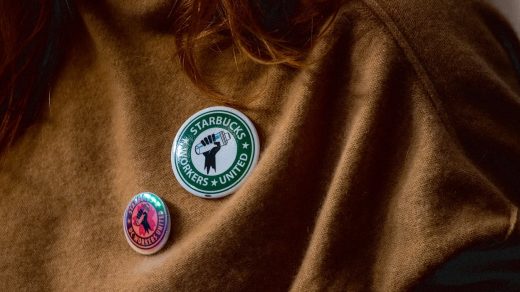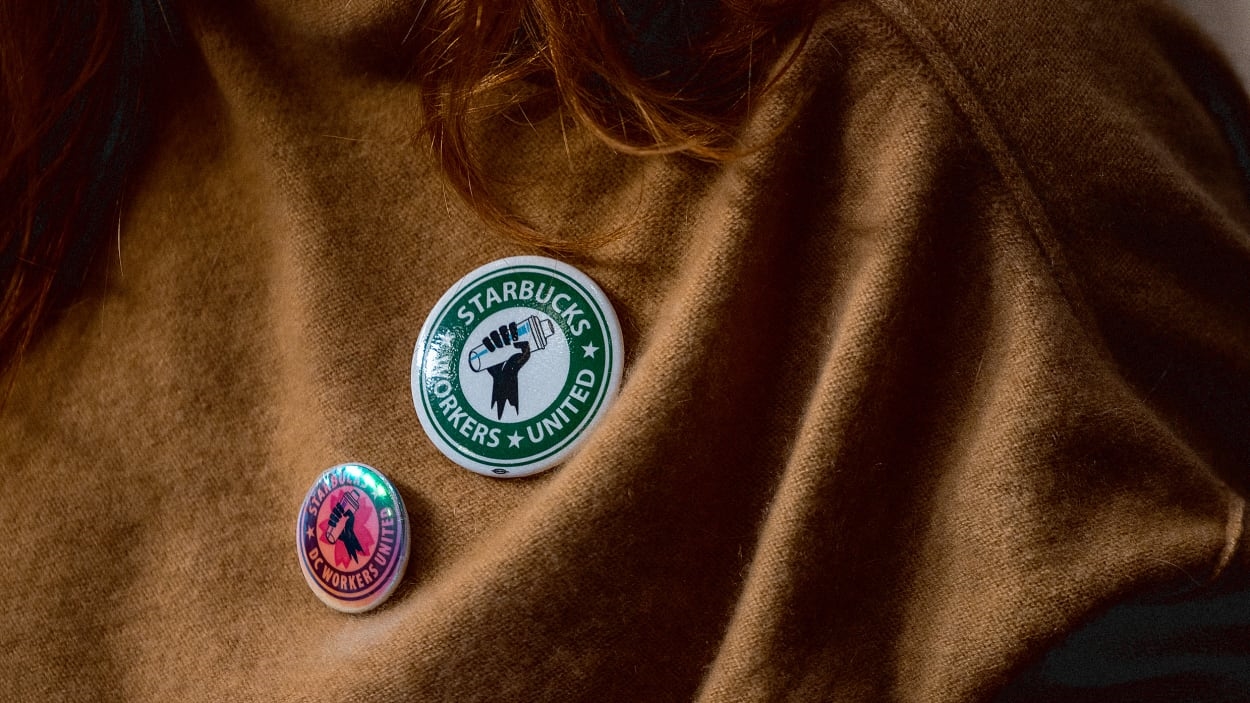New Starbucks CEO gets a powerful welcome message from pro-labor groups: no more union busting
More than 40 progressive organizations, including the AFL-CIO, Sierra Club, Women’s March, and GreenPeace, have voiced their support for unionizing Starbucks workers in a letter to the company’s new CEO, Laxman Narasimhan. That letter, published today, urges Narasimhan to “create and build a healthy working relationship with unionized partners” rather than “continuing on the current path Starbucks has taken,” which has involved union-busting practices that have earned the company multiple violations of federal labor law.
“As our nation’s leading advocacy, environmental, civil rights, gender justice, and labor organizations, who represent nearly 62 million members and supporters, we stand by workers exercising their fundamental and constitutional right to form a union,” the letter reads. “Unions are good for workers, businesses, our economy, and our democracy.”
The letter coincides with a Global Starbucks Union Day of Action, in which Starbucks Workers United, Workers United, SEIU 32 BJ, and other organizations plan to send 1 million messages to the coffee company in support of union workers. More than 296 Starbucks stores, covering more than 7,500 workers, have voted to unionize; none so far have bargained a contract with the company. (There are more than 9,000 Starbucks stores across the U.S.)
The Starbucks union said it was “excited” about the show of solidarity, and reiterated a call for Narasimhan to end Starbucks’ union-busting campaign. “This letter further highlights that Starbucks is on the wrong side of history,” Michelle Eisen, a barista from the first unionized Starbucks, said in a statement to Fast Company.
Workers in a Buffalo store were the first to vote to unionize, back in December 2021. Once workers decide to unionize, companies have a legal duty to “bargain in good faith” with those workers and negotiate a union contract. Starbucks, however, has aggressively fought the union. The National Labor Relations Board has issued more than 80 complaints against Starbucks for labor law violations; those violations include denying pay and benefits to unionized workers and illegally firing workers involved in the union.
Narasimhan took over as CEO of Starbucks at the end of March after Howard Schultz stepped down from the position earlier than planned. Days after he stepped down, Schultz appeared before the Senate Health, Education, Labor and Pensions Committee (the HELP Committee, led by Bernie Sanders) to testify about the company’s actions toward its unionizing workers.
Schultz repeatedly stated during that hearing that Starbucks didn’t break the law, despite multiple rulings from the NLRB. He also reiterated that the company would not bargain with workers on contract negotiations virtually, an ask from union workers. Instead, Starbucks is demanding in-person negotiating sessions, even though the NLRB has said that is a violation of federal labor law. The Buffalo Starbucks store has been waiting more than 460 days for a contract.
This tension marks an interesting time for Narasimhan’s takeover. In becoming CEO, Narasimhan is new to Starbucks; he was previously CEO of Reckitt, a consumer goods company that makes health and hygiene products. Workers hope he diverts from the company’s union-busting campaign and instead builds a better relationship with the union. While Schultz was openly critical of the union and said that unions don’t have a place at the company, Narasimhan hasn’t yet made his stance as clear, though he did tell the Associated Press that he “continue[s] to believe a direct relationship with our partners is the best way forward.”
(18)



